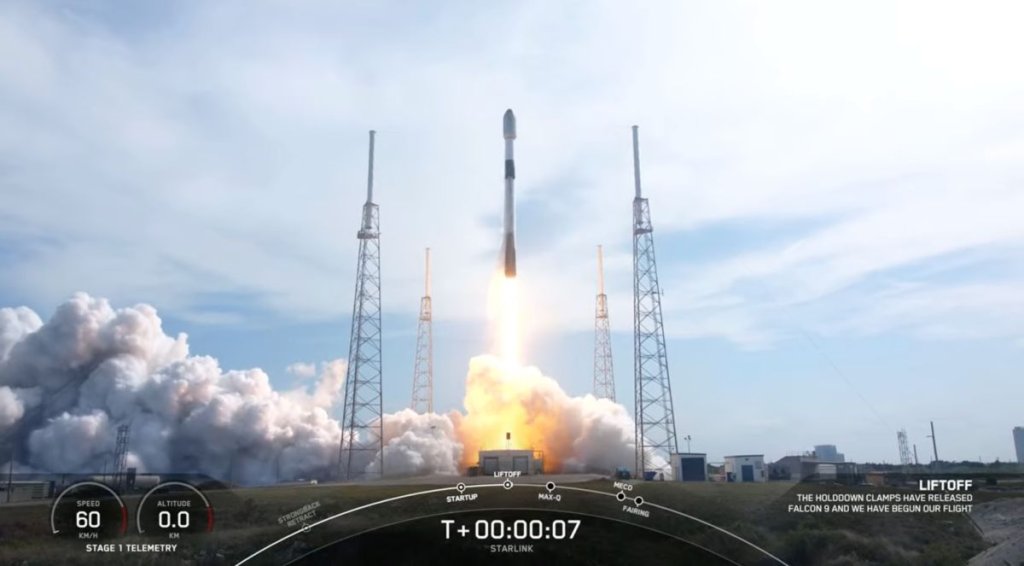SpaceX launched another big batch of its Starlink internet satellites to orbit and landed the returning rocket on a ship at sea today (March 29).
A SpaceX Falcon 9 rocket topped with 56 Starlink satellites lifted off from Florida’s Cape Canaveral Space Force Station today at 4:01 p.m. EDT (2001 GMT).
The Falcon 9’s first stage came back to Earth as planned, acing a vertical touchdown on the SpaceX droneship Just Read the Instructions about 8.5 minutes after launch.
Related: SpaceX’s Starlink satellite megaconstellation launches in photos
It was the fourth launch and landing for this particular booster, SpaceX wrote in a mission description (opens in new tab).
The Falcon 9’s upper stage, meanwhile, continued hauling the Starlink satellites to low Earth orbit (LEO). It deployed all 56 satellites as planned 65 minutes after liftoff, SpaceX confirmed via Twitter (opens in new tab).
Today’s launch was the 21st for SpaceX in 2023 and the 11th this year devoted primarily to building out the company’s Starlink broadband constellation.
SpaceX has now lofted more than 4,200 Starlink satellites overall, according to astrophysicist and satellite tracker Jonathan McDowell (opens in new tab).
Those numbers will continue to grow far into the future; Elon Musk‘s company has permission to deploy 12,000 Starlink satellites in LEO and has applied for permission for another 30,000 on top of that.
Editor’s note: This story was updated at 4:20 p.m. EDT on March 29 with news of successful launch and rocket landing, then again at 6:10 p.m. EDT with news of satellite deployment.
Mike Wall is the author of “Out There (opens in new tab)” (Grand Central Publishing, 2018; illustrated by Karl Tate), a book about the search for alien life. Follow him on Twitter @michaeldwall (opens in new tab). Follow us on Twitter @Spacedotcom (opens in new tab) or on Facebook (opens in new tab).

